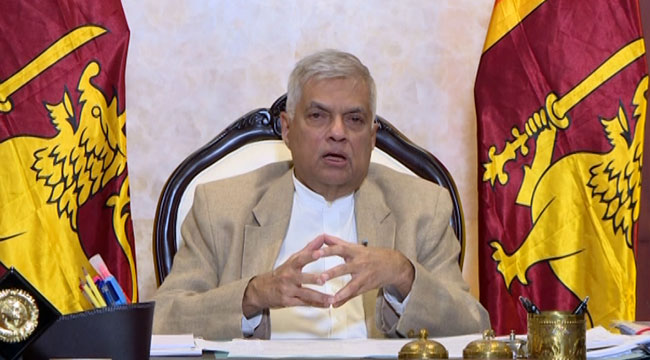The Sri Lankan Prime Minister Ranil Wickremesinghe is to visit India shortly to meet his Indian counterpart Narendra Modi and other key Indian ministers, reliable sources said on Tuesday. The exact dates of the visit are being worked out, the sources added.
Both Wickremesinghe and Modi have been keen on meeting each other ever since Wickremesinghe assumed office in May. But the Sri Lankan leader had been busy trying to manage the unprecedented economic crisis his country has been undergoing. In addition, he had to manage a fractious parliament in which he had nil support to begin with. Adding to his challenges, was the controversy over his appointment as Prime Minister bypassing others with more support in parliament. Further, agitators on the streets were wanting both President Gotabaya Rajapaksa and Wickremesinghe to go home making way for a more legitimate all-party government.
Therefore, Wickremesinghe’s primary task, upon taking over, was to establish his legitimacy by proving majority support in parliament even if it was to be only a temporary patchwork of disparate elements. Eventually, and to his credit, fairly quickly, he did stitch together an informal, but working coalition with the help of the Rajapaksas’ political party, the Sri Lanka Podujana Peramuna (SLPP).
While the irate citizens of Sri Lanka were wondering if their rulers would ever take time off from mindless politicking and attend to their crying needs, India was steadily sending aid in the form of food, fuel, fertilizer and medicine which has now reached US$ 3.5 billion in value.
But many wonder if India will be able to continue with such inputs on such a massive scale, for long. India has to factor in the fact that no other country has come in with help in any substantial way. While China has had geostrategic issues troubling it, the Western powers are waiting for the IMF’s investigations and recommendations and the Sri Lankan government’s response to those recommendations.
Against this background, a desperate Sri Lanka has asked India for an additional US$ 500 million to buy fuel. A request to push through this deal expeditiously is expected to be high on Wickremesinghe’s agenda for his talks with Prime Minister Modi, Finance Minister Nirmala Sitharaman and Foreign Minister S.Jaishankar.
On their part, the Indians, comprising Prime Minister Modi, his ministerial colleagues and the Indian Security Establishment, will be keen on getting firm commitments from Wickremesinghe on implementing or speeding up a number of projects for which MOUs had been signed, some way back in 2017.
New Delhi will also be worried about the controversy whipped up by certain circles in Sri Lanka over the US$ 500 million renewable energy projects in North Sri Lanka given to Gautam Adani. The project had been given in an unconventional way circumventing the normal tender procedure. There is controversy over the pricing of power also. Modi and his ministers will be keen to know if Adani’s project will go through smoothly and unhindered.
The power situation in Sri Lanka is worrying not only Sri Lankans but also India. India, which imports most of its oil, cannot go on sending oil consignments to Sri Lanka. It is learnt that Adani might get a major coal-powered energy project also in Sri Lanka.
To rebuild the shattered Sri Lankan economy, IMF’s help is a must. And for its part, the Lankan government must implement the IMF’s recommendations without being influenced by lobbies with a vested interest in the old, rotten system. Western aid givers and lenders have made it clear that they will go by the results of the IMF’s mission and course Sri Lanka’s follow-up actions. An IMF team is currently in Sri Lanka on a 10-day visit.
Although queues in front of fuel and cooking gas outlets are still miles long, and shortages and high prices are hitting the lower middle class and the poor below the belt, sources close to the government see a silver lining. They point out that remittances from expatriate workers and earnings from exports have increased and are expected to further increase giving rise to the hope that with greater Western support following the IMF’s intervention, the economy will be on the road to recovery towards the end of the year.


